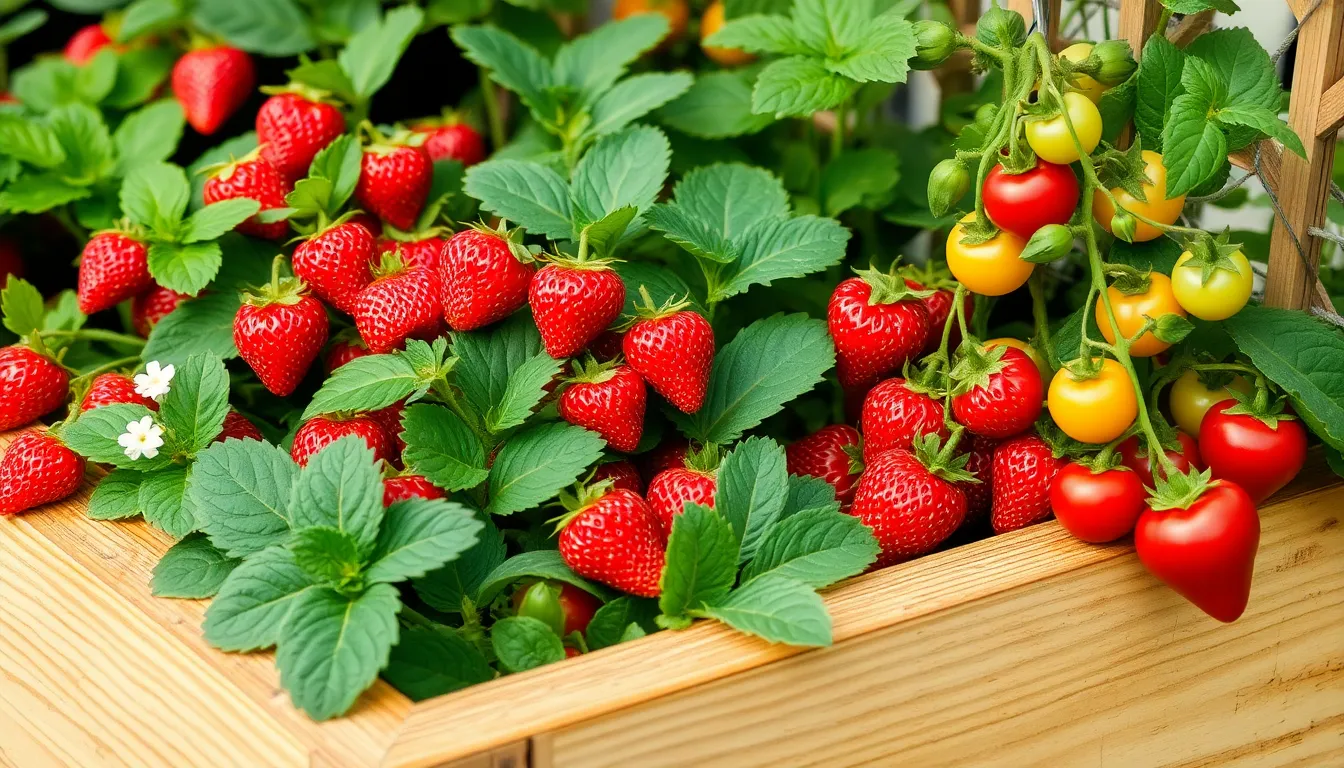Imagine stepping into your own garden oasis, where every square foot teems with vibrant life and the promise of delicious, homegrown fruit. Whether you’re a seasoned green thumb or just beginning your gardening journey, “Best Fruits to Grow in Small Gardens” is your ticket to unlocking the full potential of limited spaces. This guide is crafted with both the budding enthusiast and the veteran gardener in mind, revealing the secrets to cultivating bountiful harvests right from your own backyard, patio, or balcony.
Growing fruit in small gardens isn’t just about maximizing space—it’s about maximizing joy and satisfaction. With the right selection, even the tiniest plot can become a fruitful paradise, offering up juicy, fresh produce that elevates your meals and brightens your day. Here, you’ll discover which fruits thrive in compact environments and learn practical techniques to nurture them, ensuring your efforts are rewarded with sweet success. Dive in with confidence, as this guide empowers you to create a flourishing garden that defies its size and brings the rich rewards of nature to your fingertips.
Dwarf Apple Trees (Compact Growth for Limited Spaces)
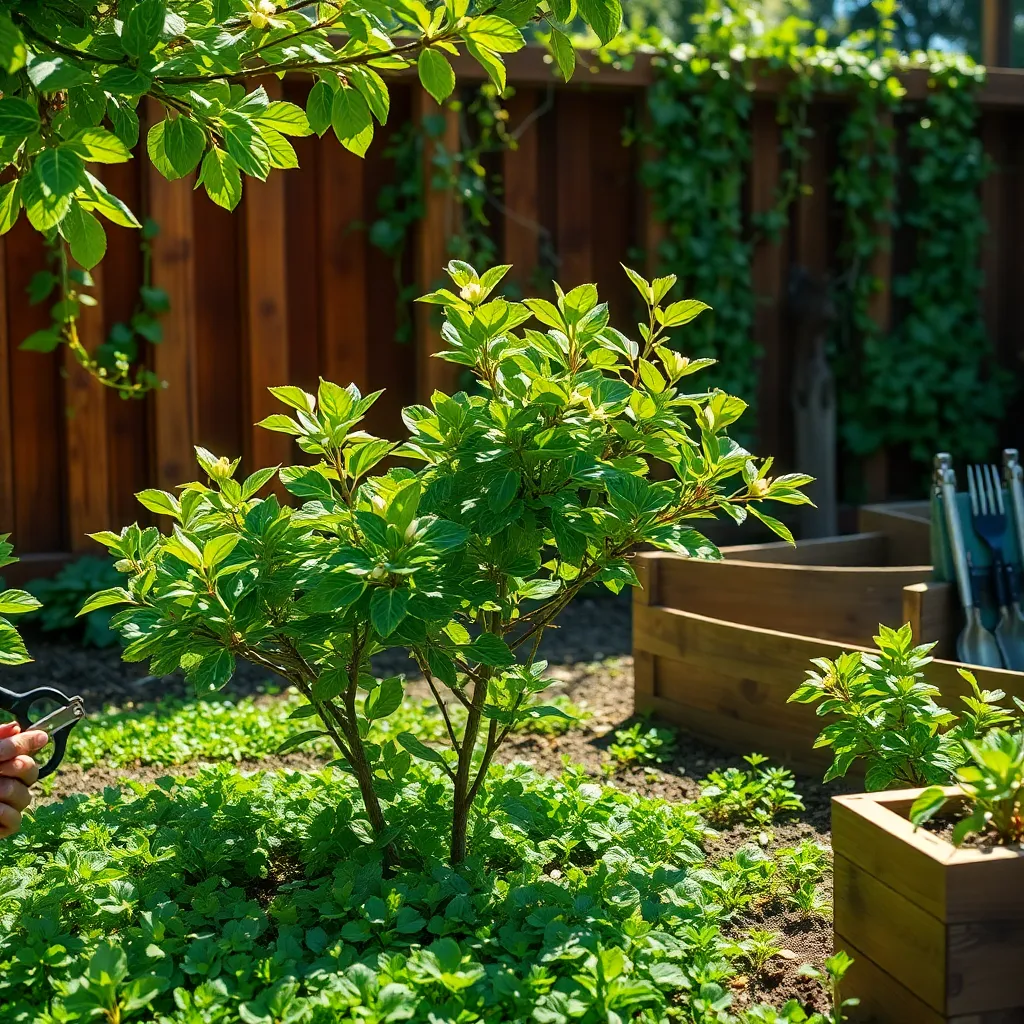
Dwarf apple trees are an excellent choice for small gardens, providing the charm of apple-bearing plants without the space demands. They typically grow to only 8 to 10 feet tall, making them perfect for limited areas and even container gardening.
To ensure healthy growth, it’s essential to plant them in an area that receives full sun, with at least six hours of sunlight each day. Use well-drained soil enriched with organic matter to promote strong root development and overall tree health.
Regular watering is crucial, especially during dry spells, but take care not to overwater as this can lead to root rot. A layer of mulch around the base of the tree can help retain moisture and suppress weed growth.
For those looking to maximize fruit production, consider thinning apples when they are about the size of a marble, leaving one fruit per cluster. This technique allows the remaining apples to grow larger and improves the overall quality of the harvest.
Berry Bushes (High-Yield Varieties for Small Areas)
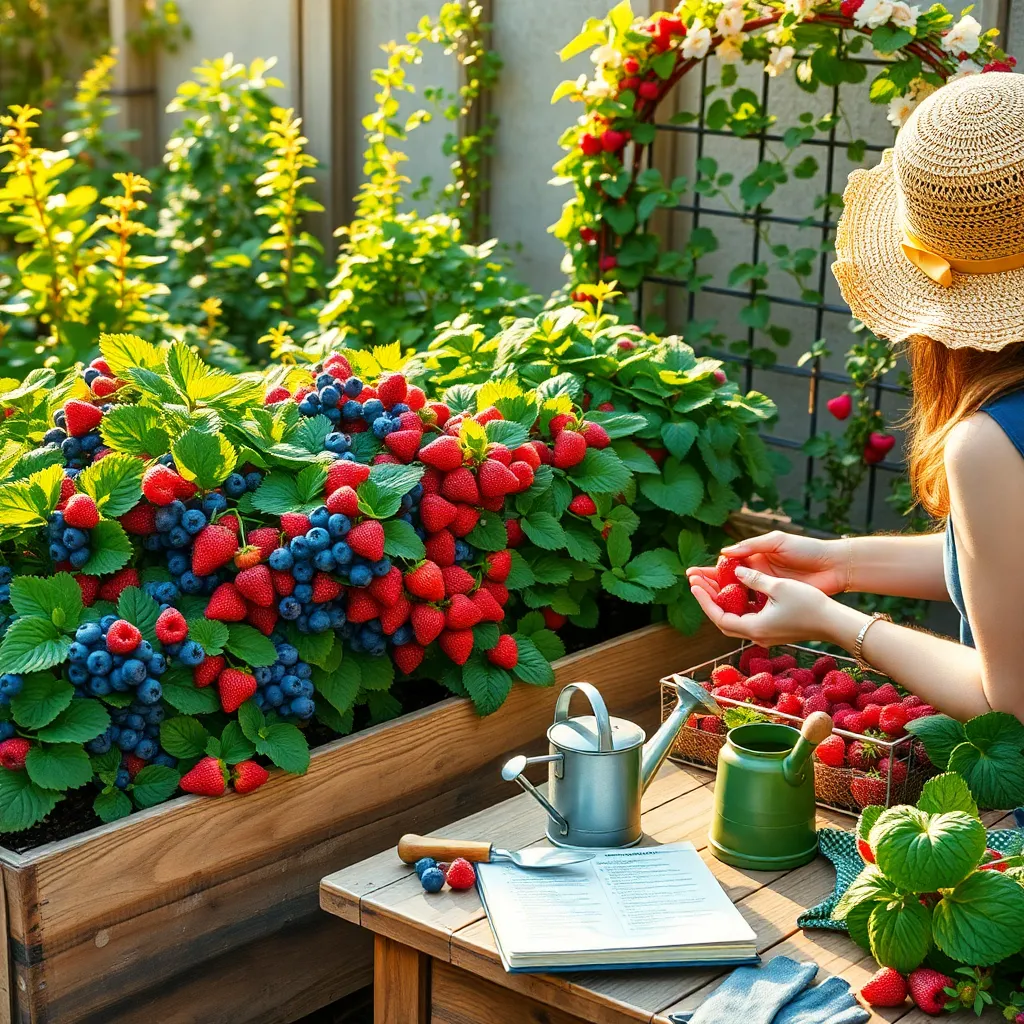
For gardeners with limited space, berry bushes are an excellent option, offering high yields in small areas. Compact varieties like ‘Raspberry Shortcake’ and ‘Jewel Black Raspberry’ are perfect for container gardening, allowing you to enjoy fresh berries even on a balcony or patio.
Ensure your berry bushes receive at least six hours of sunlight daily to thrive. Most berry varieties prefer well-drained, slightly acidic soil; consider adding peat moss to your soil mix to maintain the right conditions.
Regular watering is crucial, especially during blooming and fruiting periods, but avoid waterlogging the roots. A consistent watering schedule, allowing the top inch of soil to dry out between waterings, will help prevent overwatering and root rot.
Pruning your berry bushes annually will encourage new growth and higher fruit production. In early spring, remove any dead or weak canes, and thin out the center to improve air circulation and sunlight penetration.
Vertical Strawberry Planters (Maximize Space Efficiency)
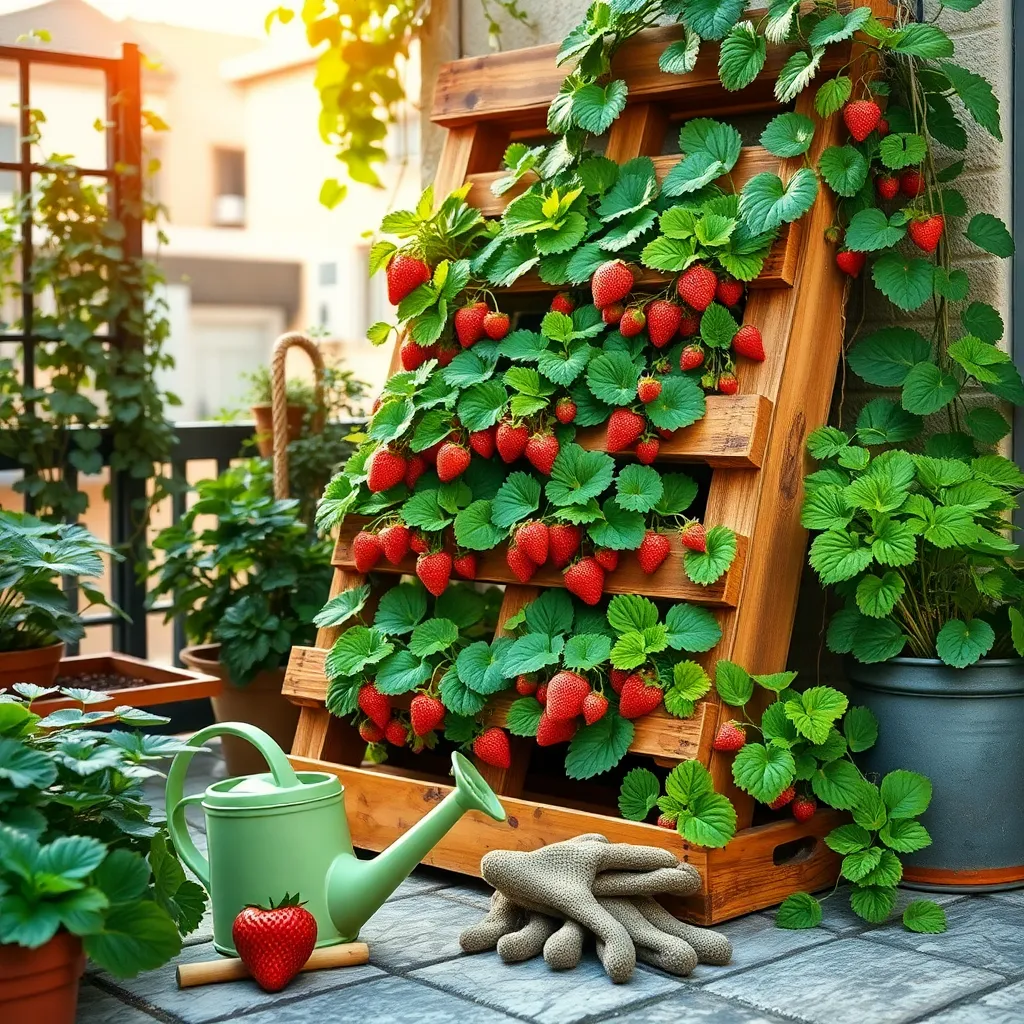
For those with limited garden space, vertical strawberry planters offer an ingenious solution to maximize your planting area. These planters allow strawberries to grow upward, making use of vertical space while keeping the ground clear for other plants.
Choosing the right container is crucial; opt for a tiered planter or a hanging pocket system to support your strawberries. Ensure that your chosen planter has good drainage, as strawberries require well-draining soil to thrive and prevent root rot.
Strawberries prefer a sunny location, so place your vertical planter where it will receive at least six to eight hours of sunlight daily. Use a high-quality potting mix enriched with organic matter to provide the nutrients strawberries need for robust growth.
Regular watering is essential, especially in warmer months, but be careful not to overwater. Consider installing a drip irrigation system or use a watering can with a narrow spout to direct water straight to the roots, keeping the foliage dry and reducing the risk of disease.
Advanced gardeners might want to explore companion planting by adding herbs like basil or mint at the base of the planter, which can help deter pests naturally. Regularly check for pests such as aphids or slugs, and remove any damaged leaves to keep your strawberries healthy and productive.
Espalier Techniques (Create Fruitful Walls with Minimal Space)
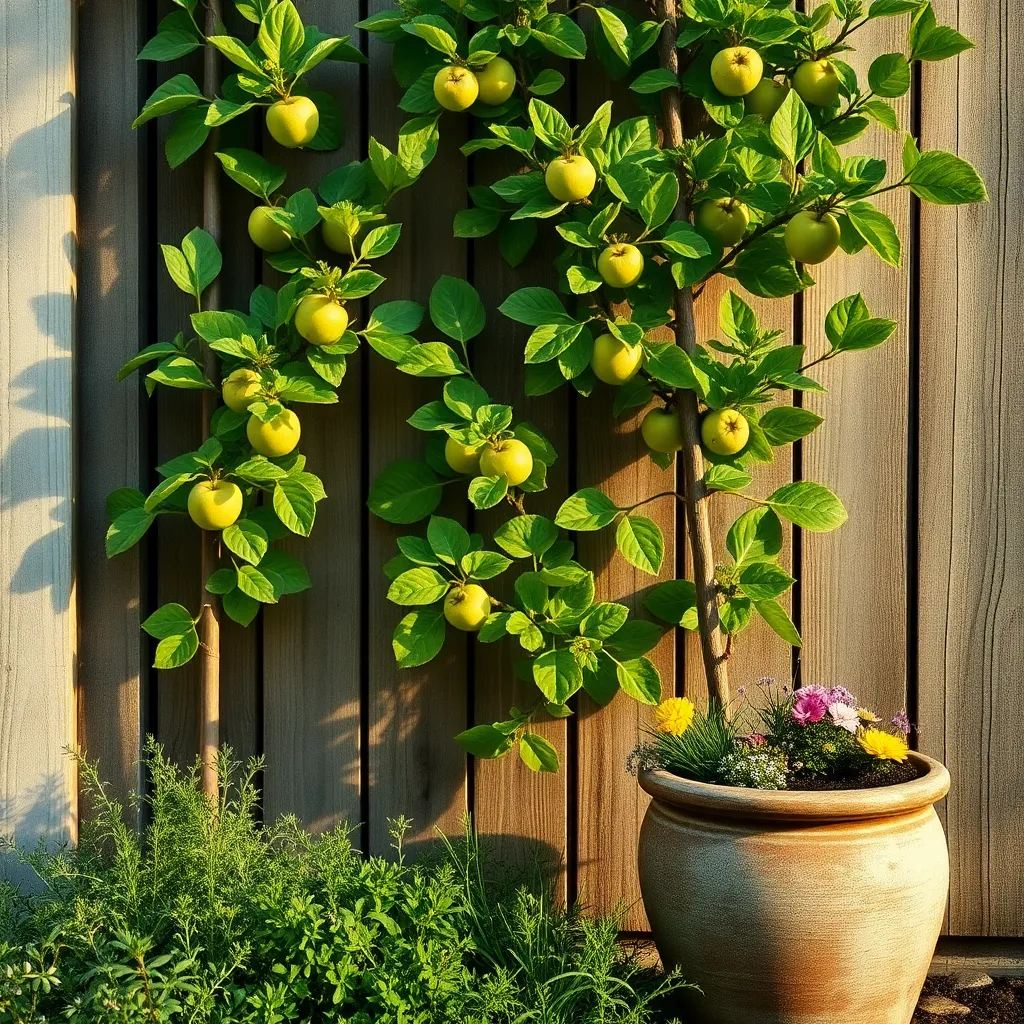
Espalier techniques offer an innovative way to cultivate fruit trees in limited spaces by training them to grow flat against walls or fences. This method not only maximizes your gardening area but also creates beautiful, living art that can enhance any small garden.
To start, select a fruit tree variety that is well-suited for espalier, such as apple, pear, or fig. Ensure the chosen spot receives at least six hours of sunlight daily, and plant the tree in well-draining soil enriched with organic matter.
Pruning is crucial for successful espalier, as it encourages the tree to maintain its desired shape and promotes healthy fruit production. Begin by training the tree’s branches along a wire or wooden frame, tying them gently to guide their growth without causing damage.
Regular maintenance involves monitoring for pests and diseases, as espaliered trees can be more vulnerable due to their close proximity to walls. Water the tree consistently, aiming to keep the soil evenly moist but not waterlogged, which is particularly vital during dry spells.
For those looking to advance their skills, consider experimenting with more complex espalier designs like the fan or candelabra shapes. These advanced patterns provide additional aesthetic appeal and can increase fruit yield by allowing more sunlight to reach the branches.
Self-Pollinating Citrus Varieties (Low Maintenance for Small Gardens)
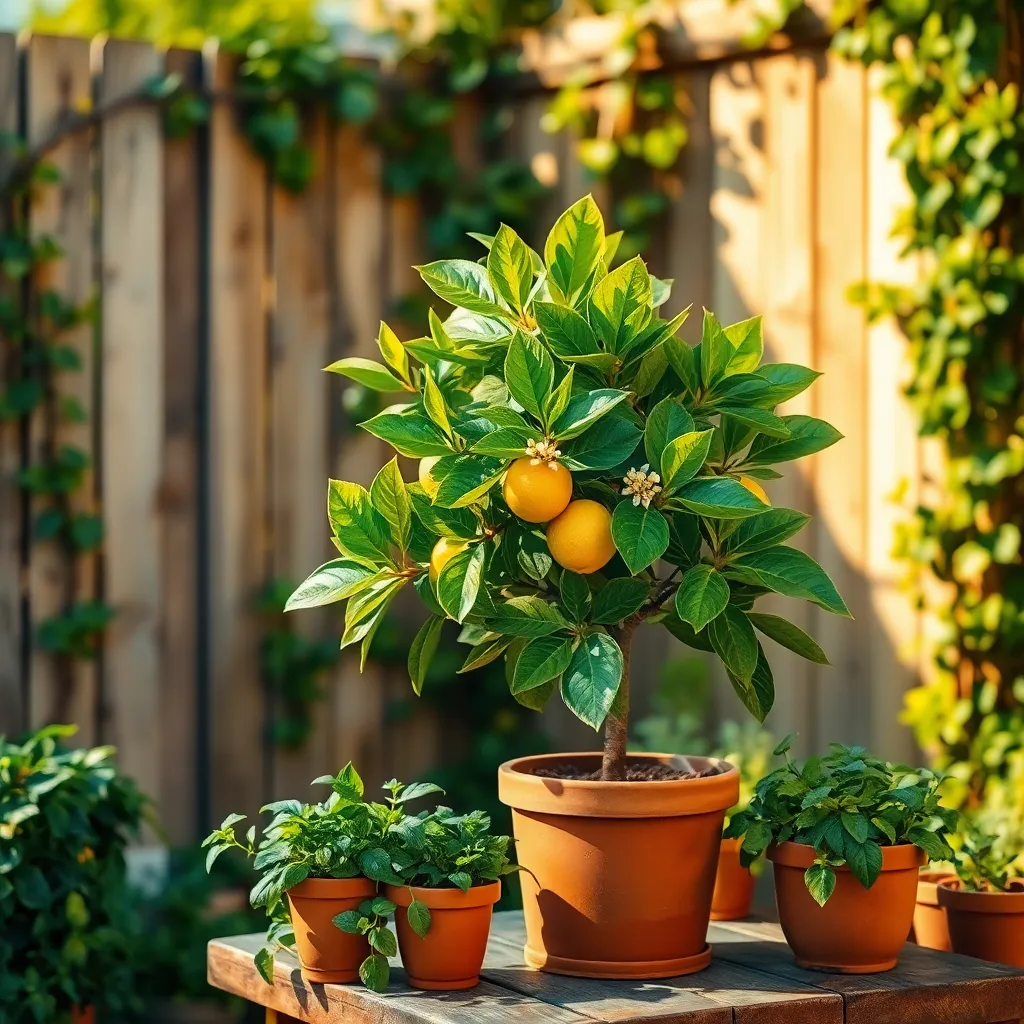
Choosing self-pollinating citrus varieties is an excellent choice for small gardens, as they require minimal space and maintenance. These plants not only save space but also reduce the need for additional pollinator plants, making them ideal for urban settings.
One of the top choices for a small garden is the Meyer Lemon, known for its compact size and prolific fruiting. This variety thrives in well-drained soil and needs about 6-8 hours of sunlight daily to produce its juicy, flavorful lemons.
Consider the Calamondin Orange if you’re looking for an ornamental and productive plant. It adapts well to container growing, making it perfect for patios or balconies, and requires regular watering to keep the soil consistently moist but not waterlogged.
For those interested in variety, the Kumquat is a fantastic option with its sweet peel and tangy flesh. It is drought-tolerant once established, but regular watering during dry spells will help maintain fruit quality and plant health.
To ensure the best growth and fruit production, apply a balanced citrus fertilizer every 6-8 weeks during the growing season. Regular pruning will help maintain the desired shape and size, which is especially important for container-grown citrus trees.
Conclusion: Growing Success with These Plants
As you embark on the journey of nurturing both your garden and your relationships, remember the five key concepts we’ve explored: choosing adaptable fruit varieties that thrive in limited spaces, the importance of regular care and attention, fostering growth through proper support structures, adapting to seasonal changes, and the joy of sharing your harvest with loved ones. These principles are not just about gardening but mirror the careful cultivation required in nurturing relationships.
To take immediate action, start by selecting one fruit plant from our list that resonates with you and plant it today. Watch as it grows, and let it remind you of the patience and care needed in your connections with others.
Don’t let this valuable information slip away! Bookmark this article now, so you have a handy reference to revisit and draw inspiration from as you continue to cultivate your garden and relationships alike.
Remember, just as a small garden can yield abundant fruit, even the smallest efforts in your relationships can lead to flourishing success. Here’s to the growth and beauty that lie ahead in both your garden and your relationships. 🌱❤️

